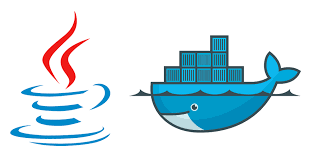Introduction
In today’s technology-driven world, the demand for data professionals is skyrocketing. Among the most sought-after roles are data engineers and data scientists. But what do these titles mean, and how do you decide which path to pursue? For aspiring data professionals, career switchers, and tech enthusiasts, understanding these roles is crucial for making an informed career choice. This post will guide you through the responsibilities, skills, job markets, and career paths for both data engineers and data scientists, helping you choose the right path for your career goals.
Key Responsibilities
Data Engineer Duties
Data engineers are the architects of the data world. They are responsible for designing, building, and maintaining the infrastructure that allows data to flow smoothly within an organization. This often involves creating and managing databases, data pipelines, and data warehouses. A key task for data engineers is ensuring that data is clean, reliable, and easily accessible to those who need it.
Real-world examples of data engineer tasks include developing a data pipeline that aggregates user activity data from a mobile app, transforming it into a readable format, and storing it in a cloud-based data warehouse. They might also work on optimizing queries to improve data retrieval times or collaborate with IT teams to ensure data security and compliance with regulations.
Data Scientist Duties
Data scientists, on the other hand, are the detectives of data. Their primary responsibility is to analyze and interpret complex datasets to extract valuable insights. This often involves using statistical techniques, machine learning models, and data visualization tools. Data scientists are tasked with asking the right questions and finding answers that can drive business decisions.
For instance, a data scientist may analyze customer purchase patterns to identify trends and make product recommendations or use predictive modeling to forecast future sales. They might also develop algorithms to detect fraudulent transactions or design A/B tests to measure the impact of marketing campaigns.
Required Skills and Background
Data Engineer Skills
To succeed as a data engineer, one needs a strong foundation in computer science and programming. Proficiency in languages such as SQL, Python, and Java is essential. Additionally, familiarity with data storage solutions like Hadoop, Spark, and cloud platforms such as AWS or Azure is highly valued.
A background in software engineering or computer science is often ideal for this role. Many data engineers also have experience in database administration or systems architecture. This technical expertise enables them to design efficient and scalable data systems.
Data Scientist Skills
Data scientists need a robust skill set that combines technical prowess with analytical thinking. They should be proficient in programming languages like R and Python, as well as have a strong grasp of statistics and machine learning. Data visualization tools like Tableau or Power BI are also critical for presenting findings effectively.
An academic background in mathematics, statistics, or data-related fields is typically beneficial. Many data scientists have advanced degrees, such as a master’s or Ph.D., which provides them with the necessary depth of knowledge to tackle complex problems.
Job Market Analysis
Demand for Data Engineers
The job market for data engineers is thriving, with organizations increasingly recognizing the importance of a solid data infrastructure. Salaries for data engineers can vary widely depending on experience and location, but they generally range from $85,000 to $150,000 annually.
Career growth opportunities for data engineers are promising, as they can advance to senior data engineer roles or transition into data architecture and management positions. The demand is particularly strong in tech hubs like Silicon Valley, New York City, and Seattle.
Demand for Data Scientists
Similarly, the demand for data scientists continues to grow as businesses seek to leverage data-driven insights for competitive advantage. Salaries for data scientists can range from $95,000 to $180,000 per year, with opportunities for substantial bonuses based on performance.
Data scientists can progress to senior roles or transition into specialized fields such as AI or machine learning engineering. The geographical demand is widespread, with opportunities in major cities and sectors ranging from finance to healthcare.
Career Paths and Trajectories
Data Engineer Path
Data engineers often begin their careers as junior data engineers or database administrators. Over time, they can progress to senior data engineer roles, where they take on more complex projects and leadership responsibilities. Some may choose to specialize in areas like data architecture or cloud computing.
Future technologies like IoT and big data analytics offer exciting opportunities for data engineers to innovate and expand their expertise. With the right experience and skills, they can advance to roles like chief data officer or head of data engineering.
Data Scientist Path
Data scientists typically start as junior data analysts or scientists, gradually taking on more challenging projects and responsibilities. With experience, they can specialize in areas like deep learning, natural language processing, or AI research.
Industry trends point to an increasing need for data scientists who can bridge the gap between data analysis and business strategy. Those with strong communication skills and business acumen may move into executive roles or lead data-driven initiatives.
Decision-Making Factors
Personal Interests
When choosing between data engineering and data science, consider your personal interests. If you enjoy building systems and working with complex technical infrastructures, data engineering may be the right fit. If you’re passionate about uncovering insights from data and solving business problems, data science could be your calling.
Skill Sets
Evaluate your skill sets and educational background. Data engineering is more suitable for those with a strong foundation in computer science and programming, while data science is ideal for individuals with a background in statistics and analytics.
Career Goals
Consider your long-term career goals. Data engineers may find greater satisfaction in technical leadership roles, while data scientists may thrive in roles that involve strategic decision-making and innovation.
Advice for Aspiring Professionals
Upskilling Recommendations
For those considering a career in data engineering or data science, continuous learning is key. Enroll in online courses or bootcamps that cover essential skills such as programming, data analysis, and machine learning. Platforms like Coursera, edX, and DataCamp offer a wide range of courses tailored to aspiring data professionals.
Networking Strategies
Networking is crucial for career advancement. Attend industry conferences, join professional organizations, and participate in online forums to connect with experienced data professionals. Building a strong network can open doors to job opportunities and mentorship.
Conclusion
In the rapidly evolving tech landscape, the decision to become a data engineer or a data scientist is a significant one. Each role offers unique opportunities and challenges, and the right choice depends on your interests, skills, and career goals.
By understanding the responsibilities, skills, and job markets for both roles, you can make an informed decision about your career path. Remember, the tech industry is dynamic, and there are ample opportunities for growth and specialization in both data engineering and data science.
Whether you choose to build the infrastructure that powers data-driven insights or unravel the mysteries hidden within data, the world of data offers a rewarding and impactful career. Pursue your passion with confidence, and you’ll find success in the exciting field of data technology.
























